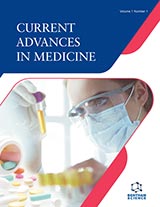Abstract
Atrial fibrillation (AF) is the most common sustained chronic cardiac arrhythmia in clinical practice, increasing the risk of stroke, thromboembolism and mortality. The pathophysiology of AF is complex, including inflammation, oxidative stress, structural remodeling with apoptosis or fibrosis, leading to remodeling in the atria. However, the underlying mechanisms involved in the development of AF are not fully understood. Biomarkers, mainly determined in peripheral blood may increase our knowledge of the pathophysiology of AF with important implications in the assessment of AF diagnosis, prognosis, or therapy decision-making. The aim of this chapter is to provide an exhaustive overview of the knowledge about classical and novel biomarkers in AF and their implications, diagnostic and therapeutic potential.
Keywords: Adiponectin, Atrial fibrillation, Biomarkers, BTP, CRP, Cystatin Ddimer, E-sel, GDF-15, IL-6, NT-proBNP, Micro particles, MiRNAs, Mortality, Psel, rTPA, sTM, Stroke, Thromboembolism, Troponin, VWF.






















